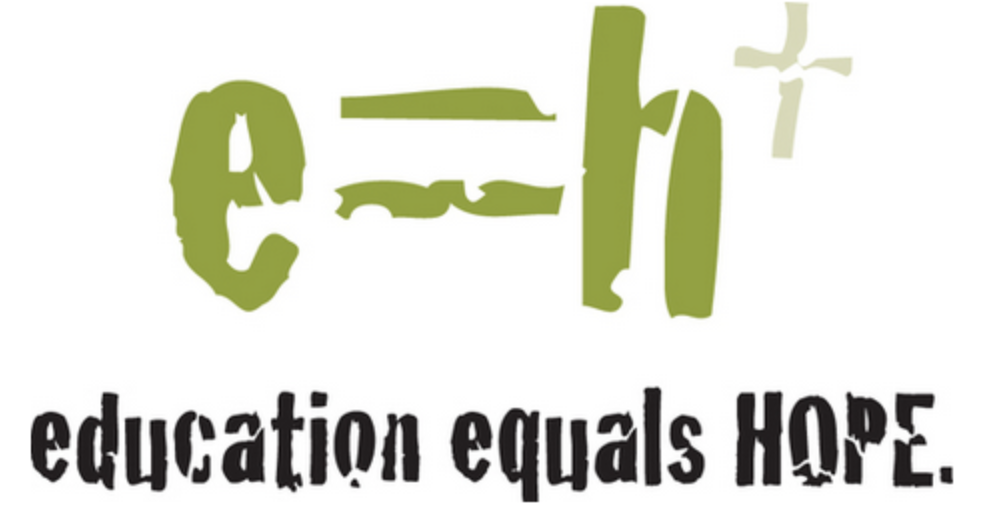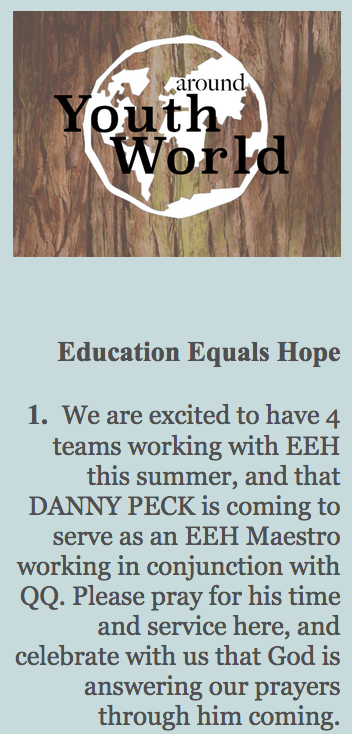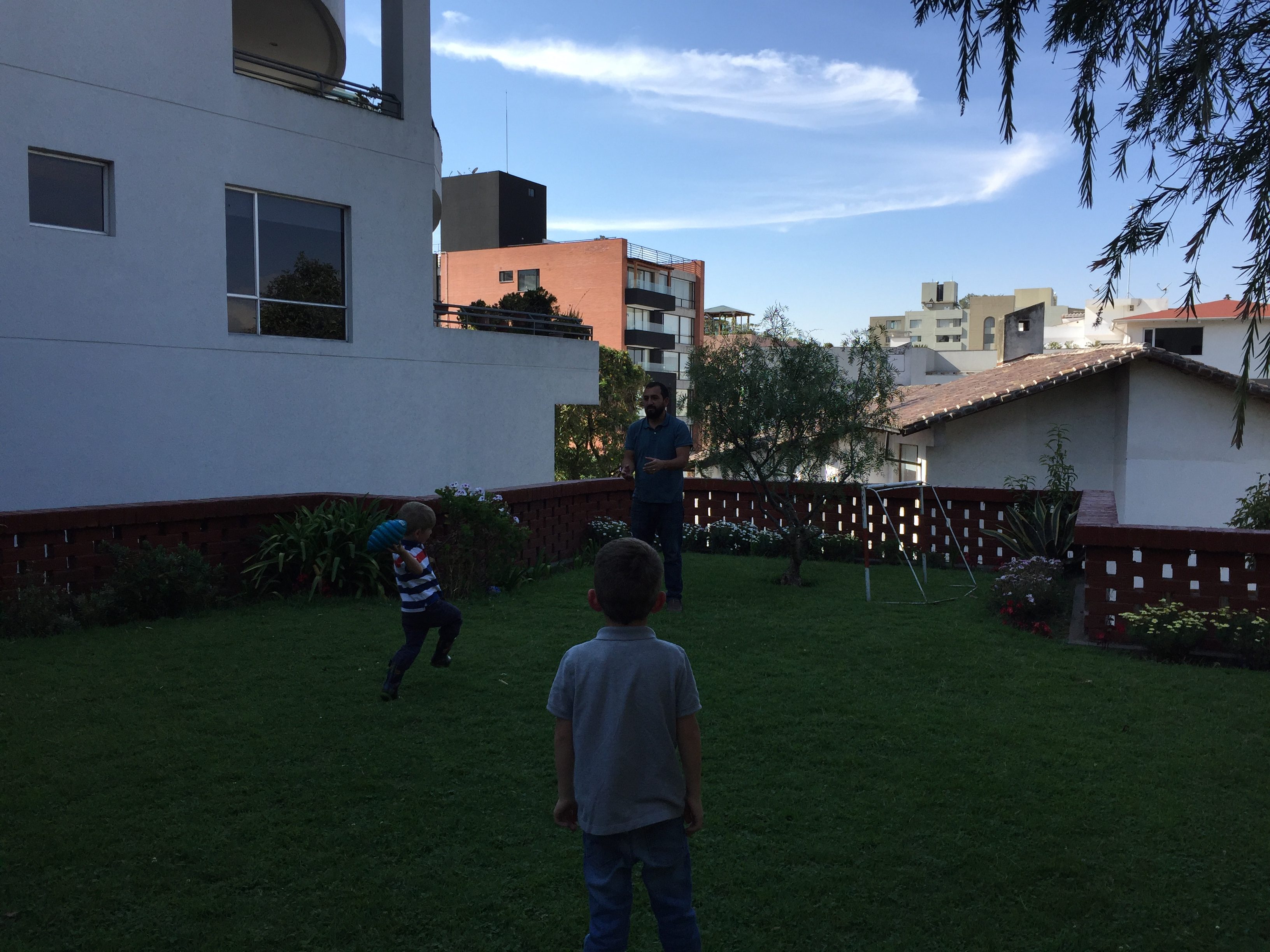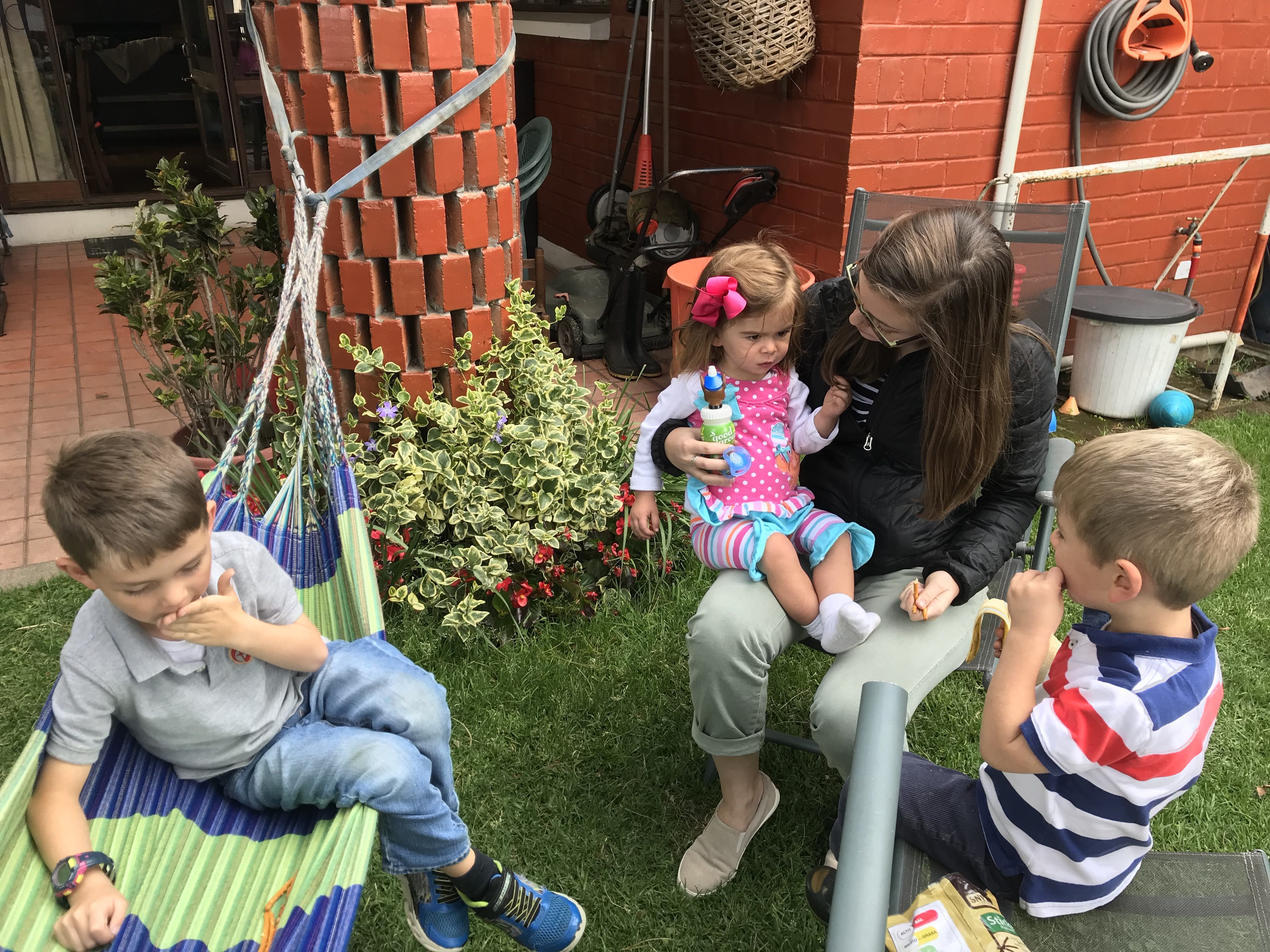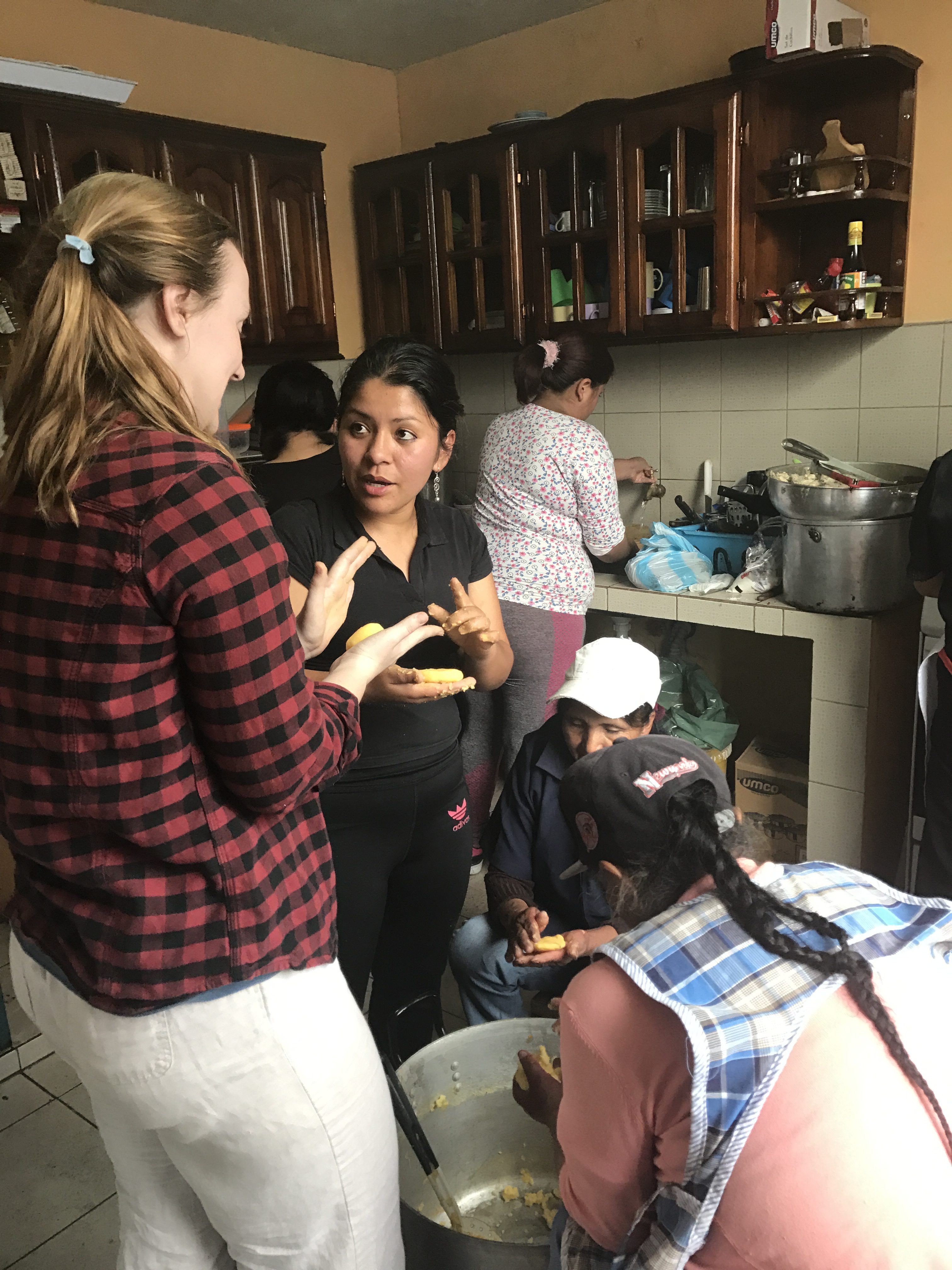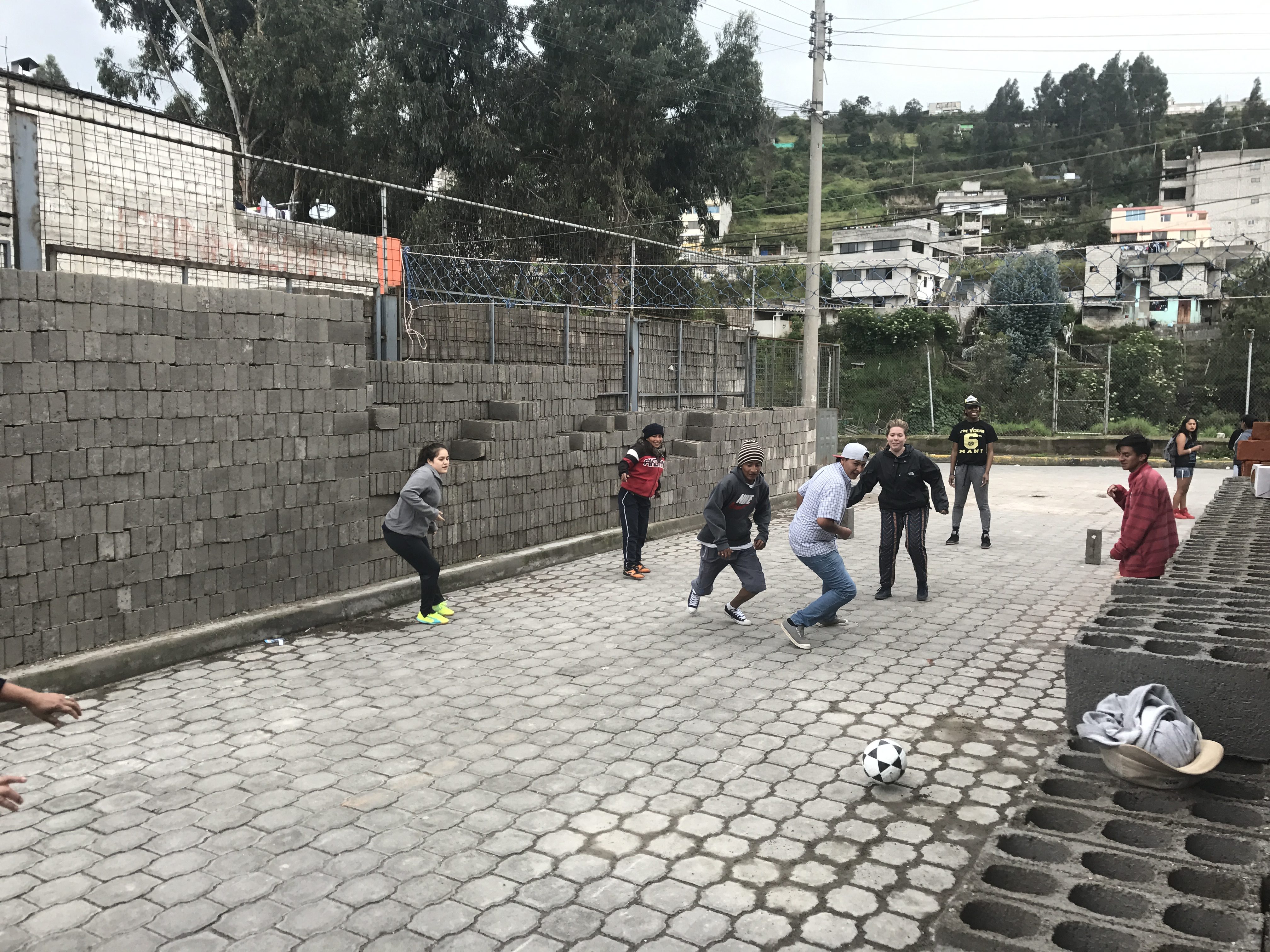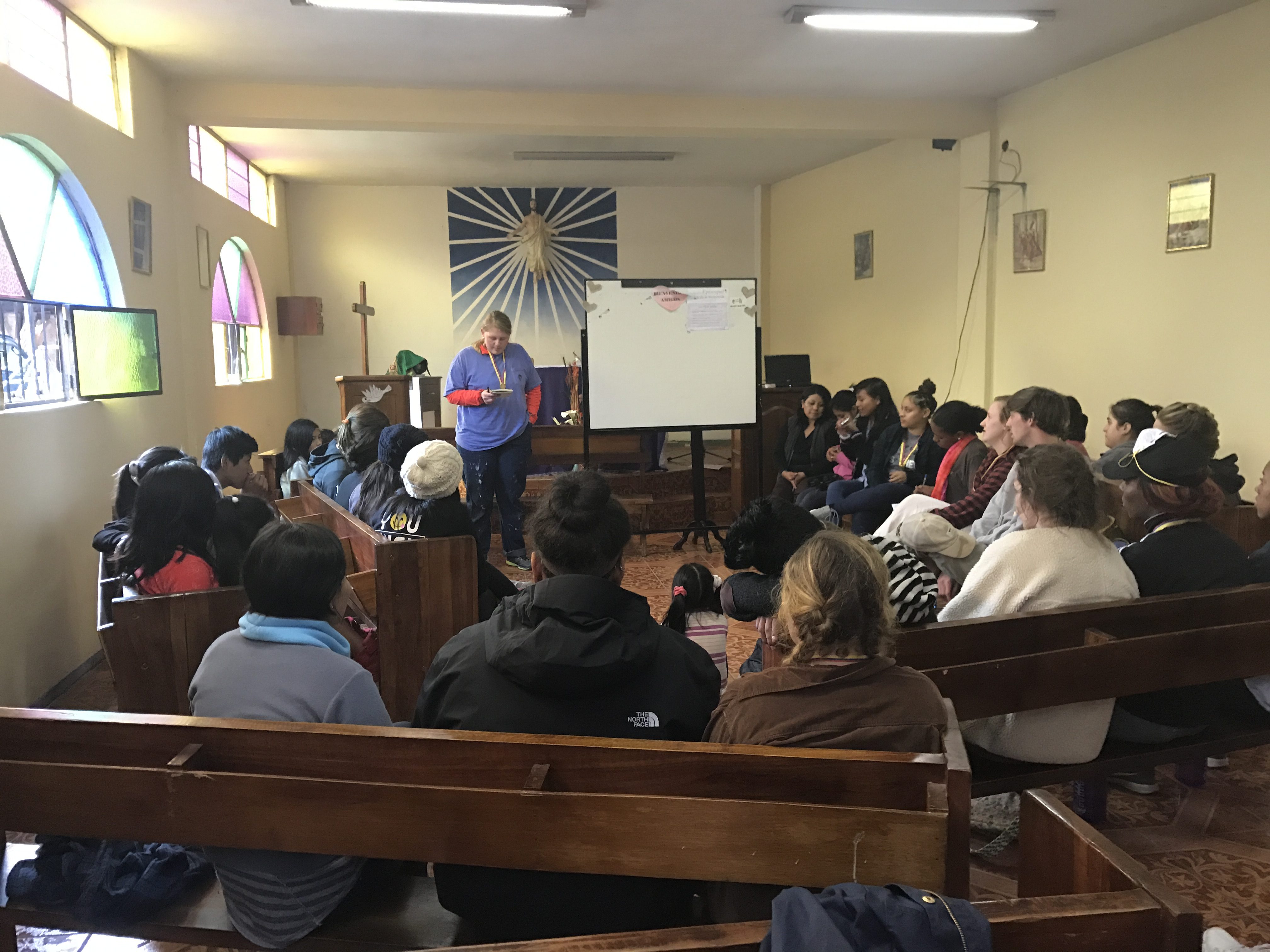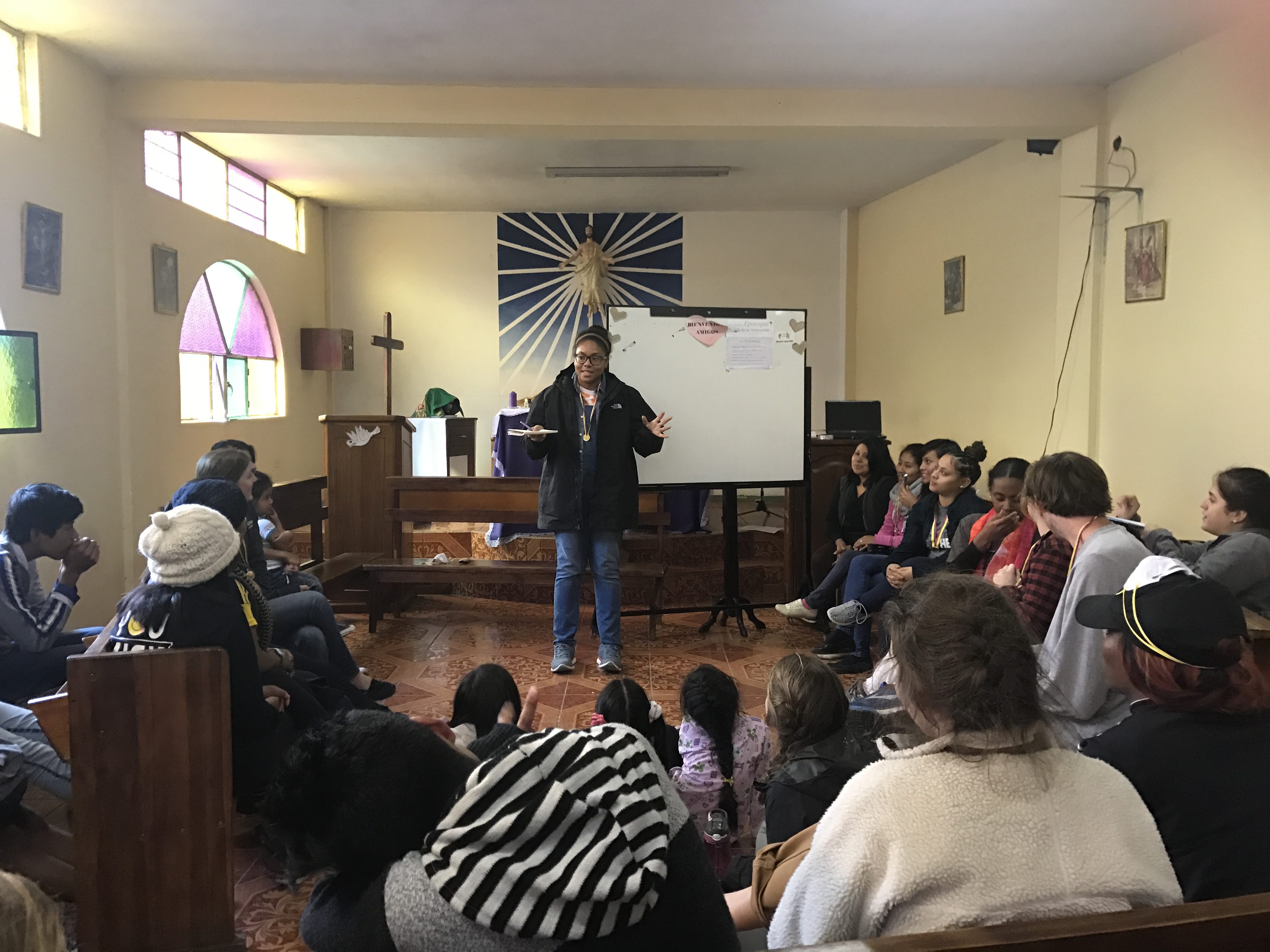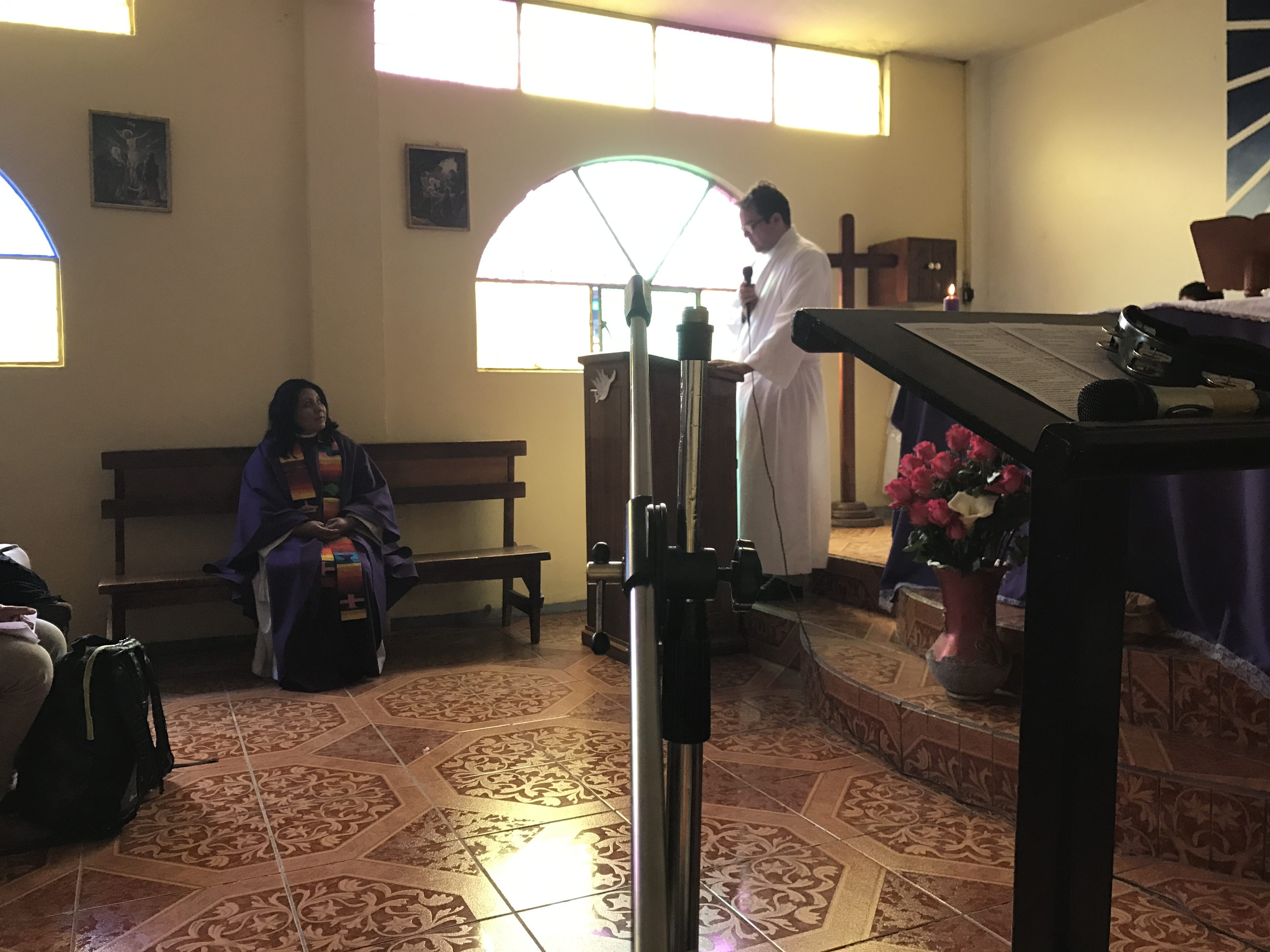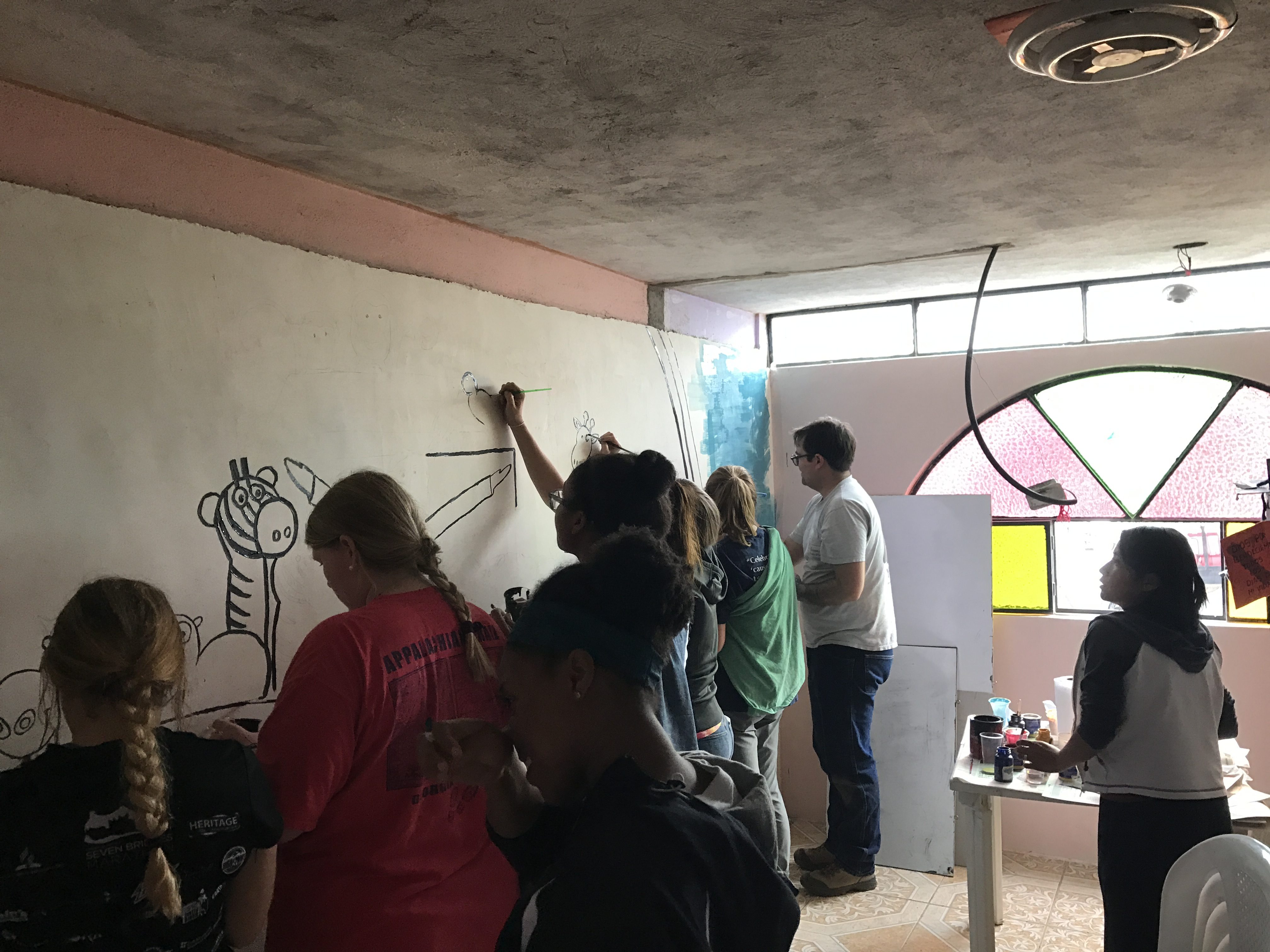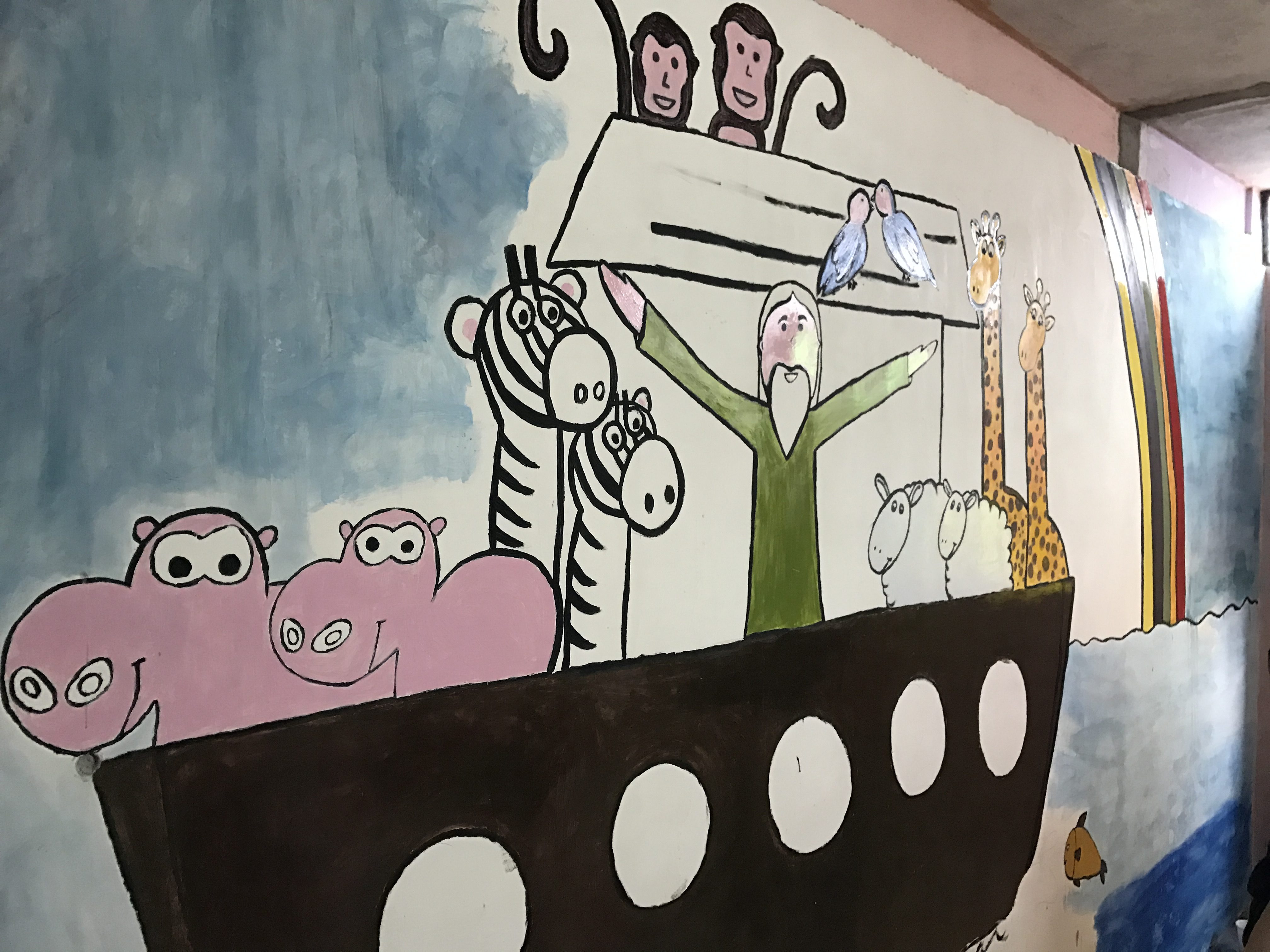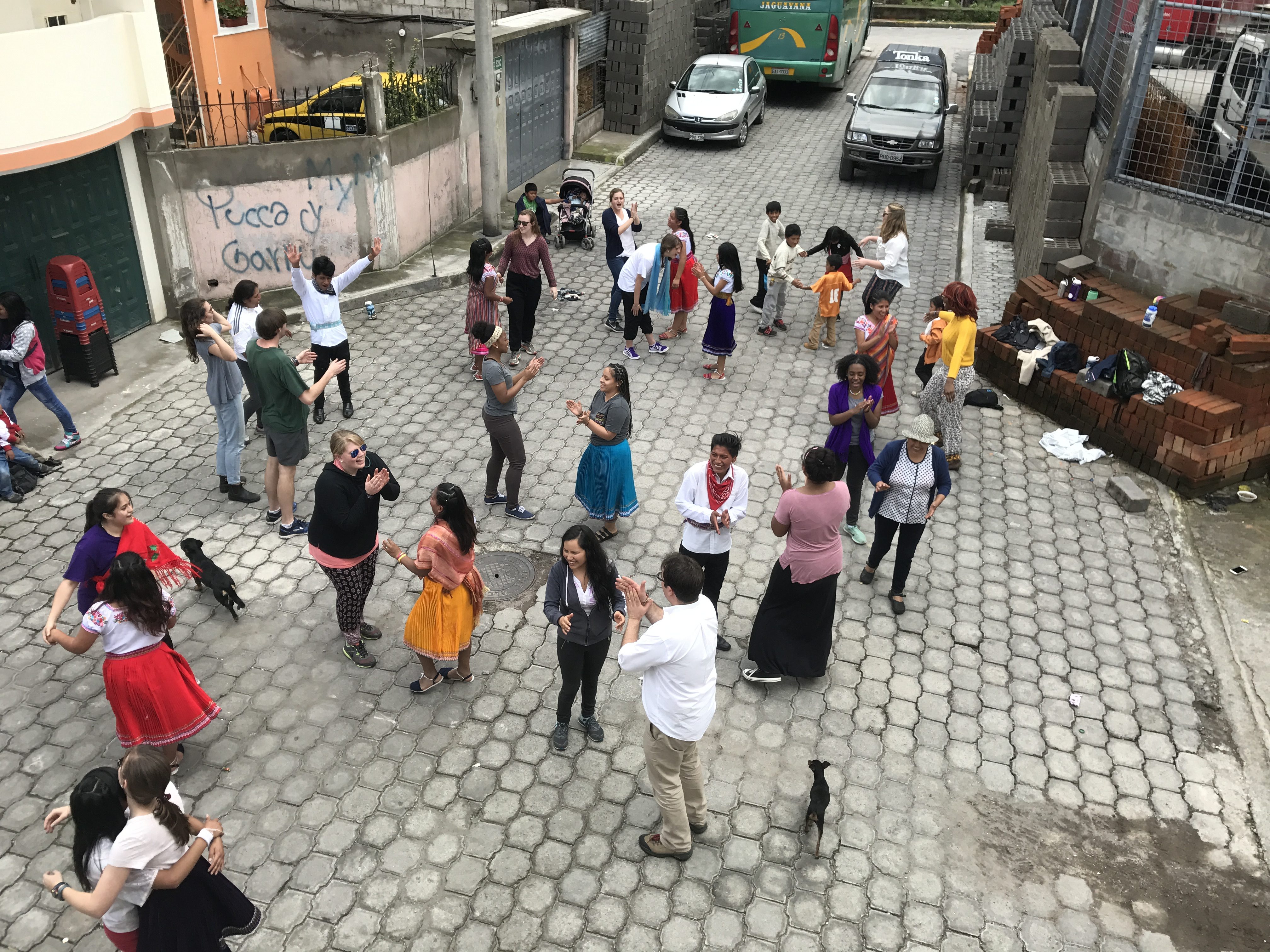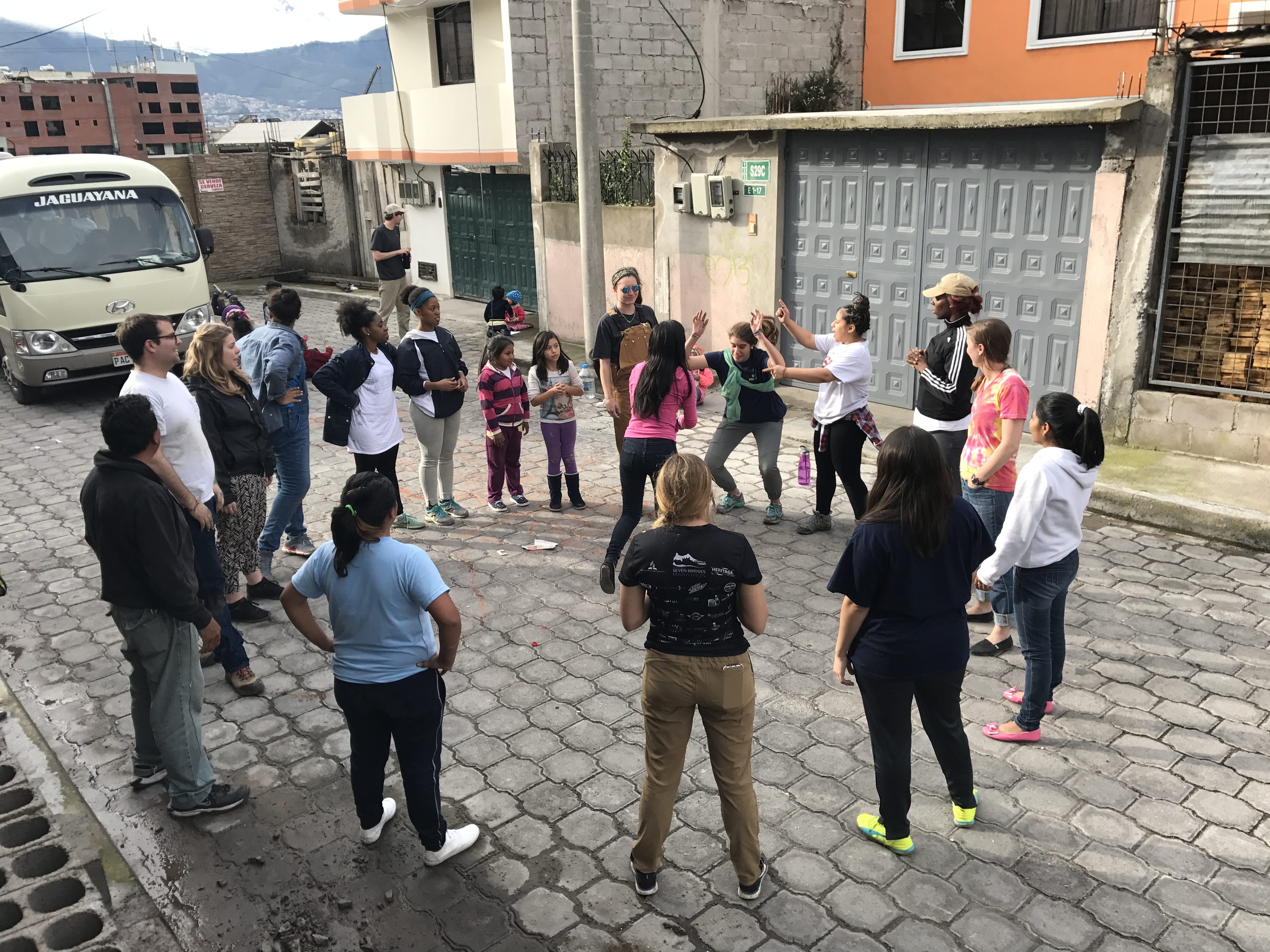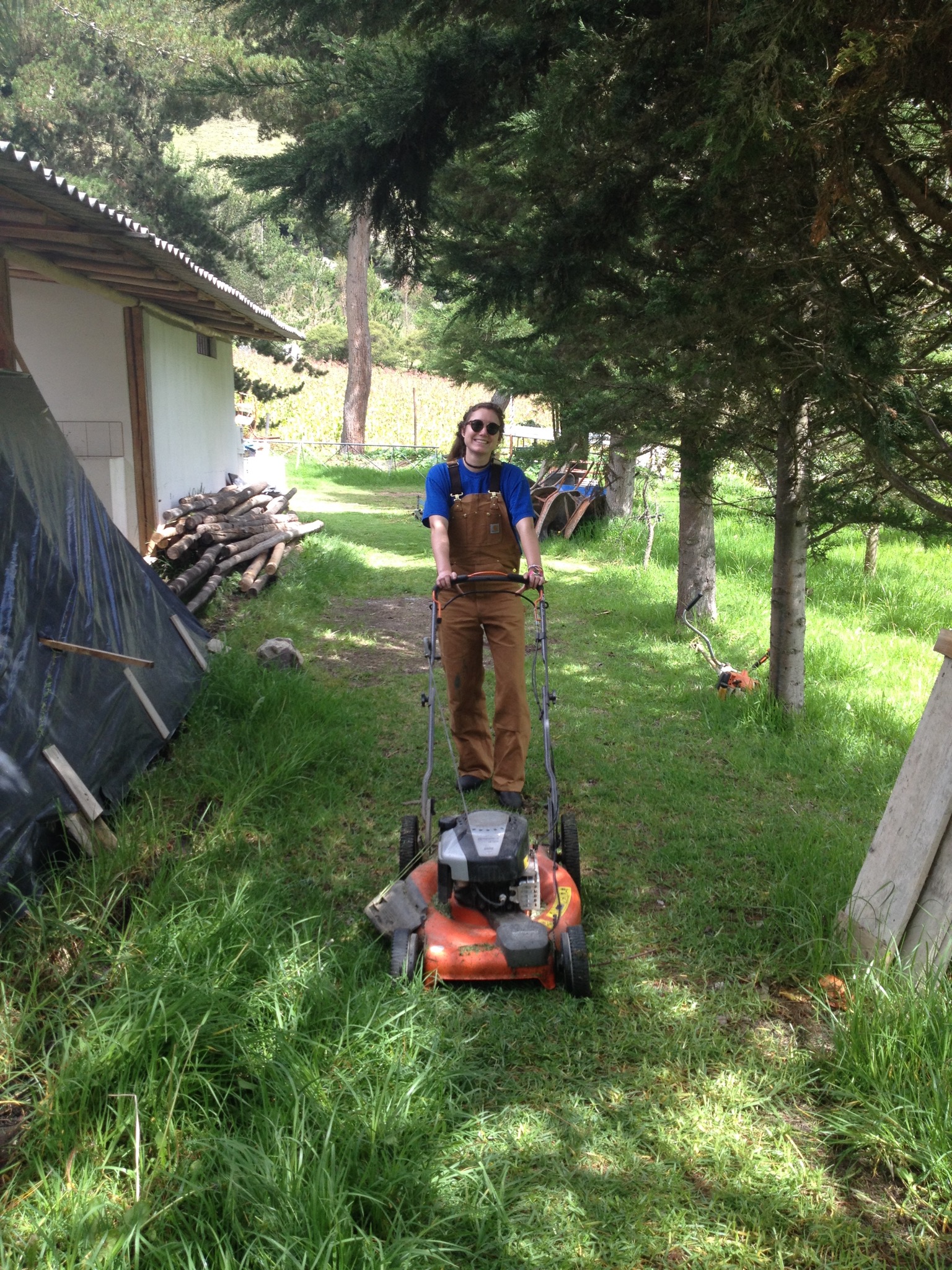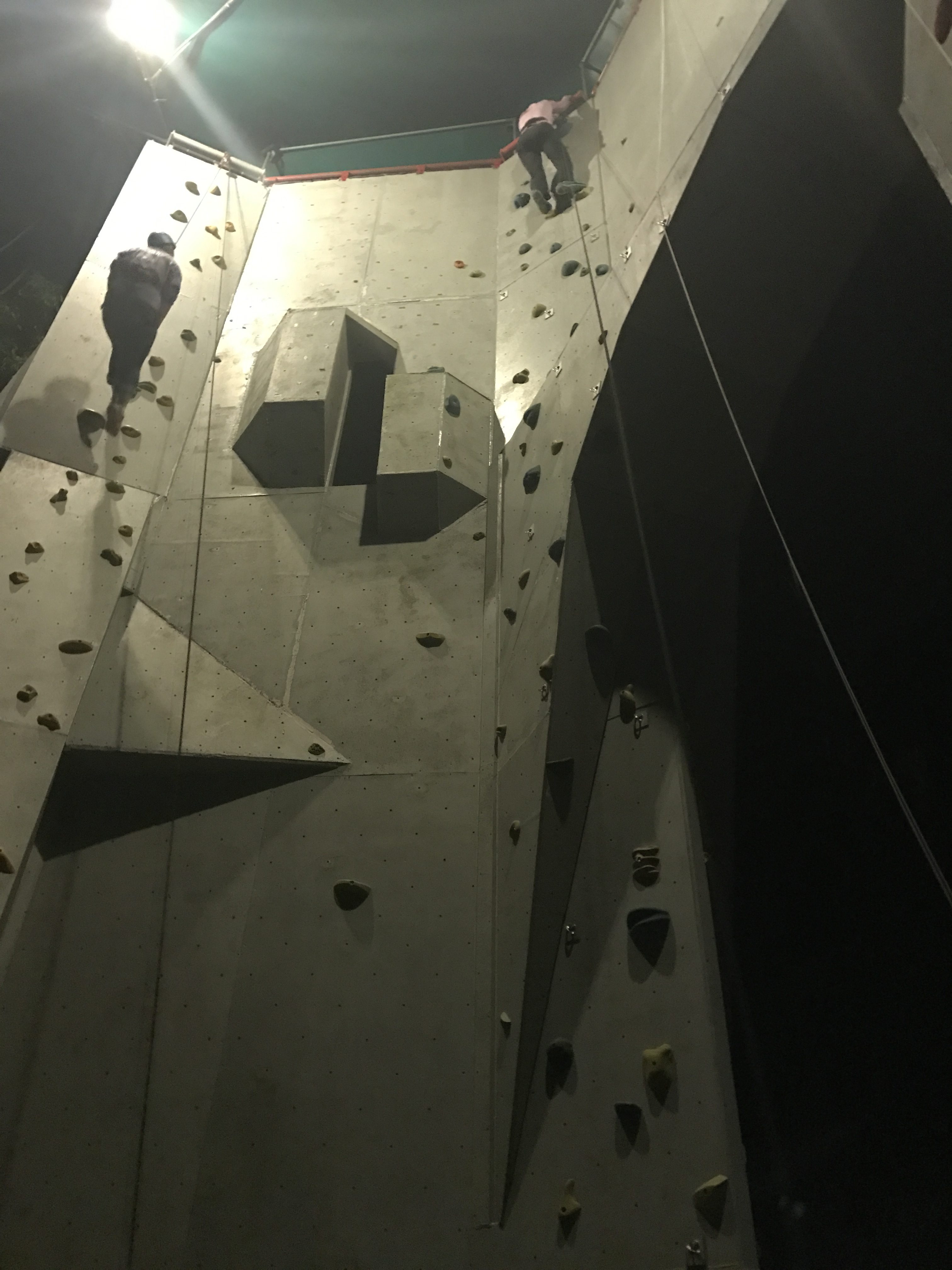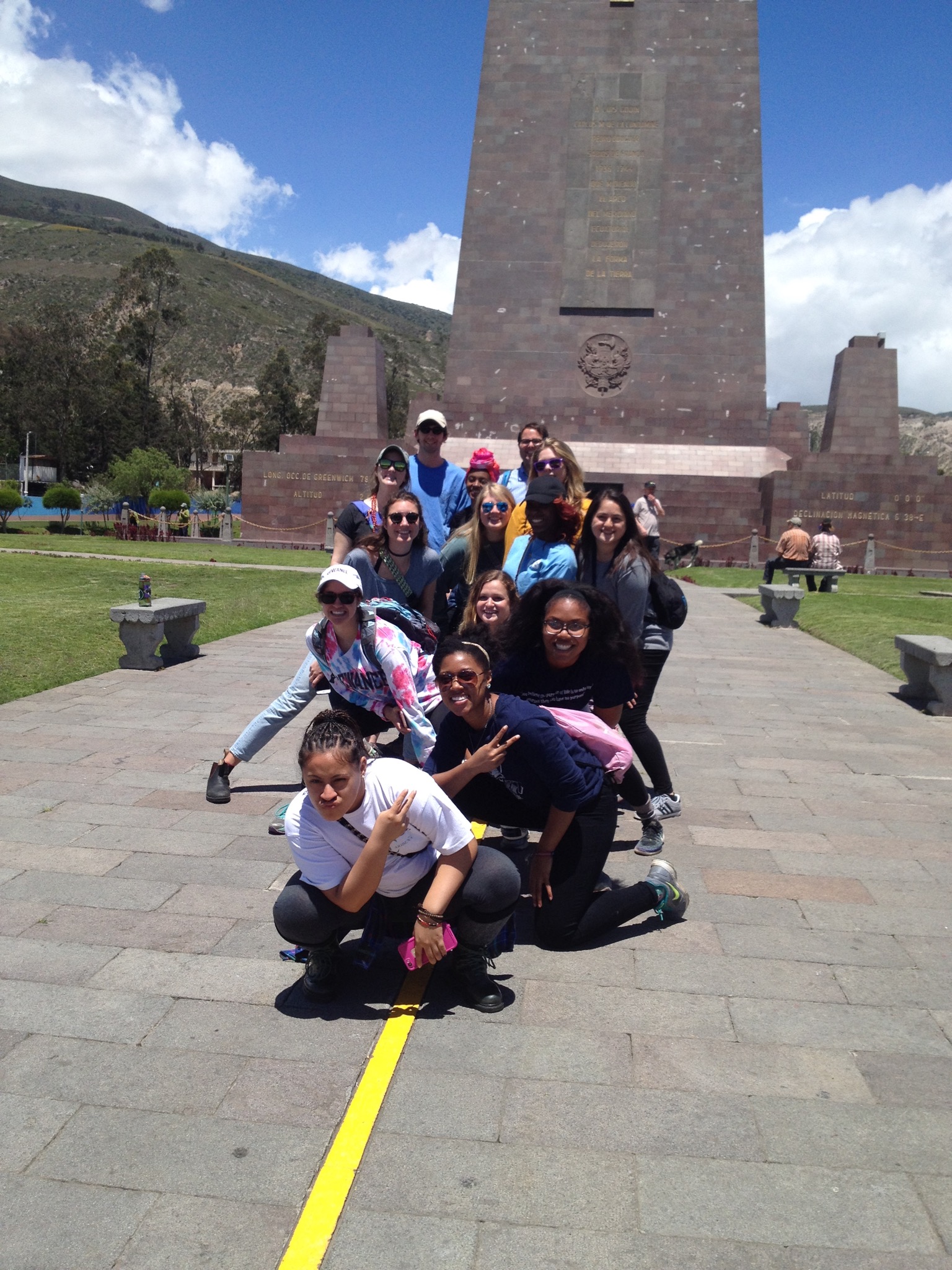When a short-term team comes through the Quito Quest program, the first full day that they are on the ground is a day to acclimatize. Somewhat literally, as altitude is generally a large concern, and somewhat figuratively, as they experience the language and the culture and the food and the pace of life in Ecuador and in Quito specifically. It’s an “easy” day in the sense that they are not working at ministry sites yet, but it is full. Or as my bilingual brain would put it, “full full.”
Today was a day like that for me. At the end of plane ride #10 to Ecuador, it seems perfectly normal for me to walk out of customs, meet Roberto, and walk out into the night air and city sounds of Quito. But “regular day” though it felt, the travel does take its toll on me, and after an hour car ride back home to the Vicancos’ last night, I was beat. So I was very thankful to have the opportunity to sleep in this morning.
I woke up slowly to the sound of the boys moving around and beginning to get ready and eat. And I was greeted by Graham’s surprised, joyous cry of “Daaaannnyyyy!” From the breakfast table when I finally (at 8:00) walked out of my room this morning. I just got to just participate in life at casa Vicanco. Breakfast and playtime and walking Graham to preschool and jamming on a ukulele with Liam. We went to the bread store and I copied some keys and I got to participate in my first Tuesday morning Quito Quest meeting in almost six(!) years. When I woke up there was one and only one thing on my schedule for the day. And it didn’t happen. Because the day began to fill up with normal life despite my lack of plans. And again, I was exhausted by 3:00 in the afternoon. Travel takes its toll, but so does altitude. It makes normal life take twice as much energy.
After a quick nap I met Roberto on Av. Brasil and jumped into the Suburban with him, Joaquin, the three other members of his band (Gedeon) and a trunk full of instruments and sound equipment. Way too many people and cases in one vehicle, but once again, totally normal around here. We drove out to El Refugio and began setting up for their gig, which was to play for a group of leaders who have been training out there and were celebrating their time together before they head home. There was a dinner and the plan was for Gedeon to play both some romantic music and some praise songs. But about 20 minutes before the dinner was to begin, all the power in the Grace Center went out. I thought the band had blown a fuse with all their equipment, but it turned out that the power was out all over the property. My friend Christy summed it up immediately and succinctly: “That’s unfortunate.”
Having spent more than half my life in North Carolina with its nor’easters and hurricanes and people who crash into power substations during fog, I’m no stranger to electrical outages. But Ecuador can take them to a whole different level. We had no idea when or if the power would return tonight or tomorrow or next week. Especially outside the city of Quito. So the band dug up an acoustic guitar and a djembe that someone had on the property so they could begin rehearsing an emergency acoustic set.
Byron rescued the situation, setting up the El Refugio generator so the band could have power and we could have one work light under which to eat. And throughout dinner and music and presentations, the lights returned and went out 3 more times. Totally unpredictable, and totally normal.
I won’t even go into detail about the preaching, or the worship, or the dancing that happened throughout that dinner gig. It was all entirely behind schedule (that I worried we’d be on time to the airport) and fantastic and hilarious and God-filled. I’m not sure if it’s okay to describe something God-filled as “normal.” Suffice it to say it was all within the theme of the day.
Our final adventure of the night was to pick up Caroline from the airport. We were worried we’d be late as we hauled tail all the way from El Refugio but with three planes arriving at once, we waited for about fifteen minutes before Caroline’s wide-eyed smiling face poked out from between the doors from Immigration. Totally normal to see her in Ecuador and weird that the last time we hung out was in North Carolina. And all three of us were thrilled both to hang out in the car for an hour and then to fall into each of our beds.
Travel takes its toll. Altitude takes its toll. And long days take their toll. So I’m grateful for my day “set aside” for adjusting to my Ecuadorian life. And thrilled at how normal my abnormal Ecuadorian life has become.

